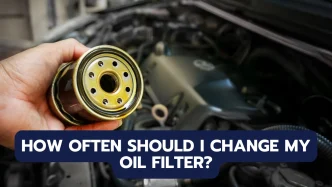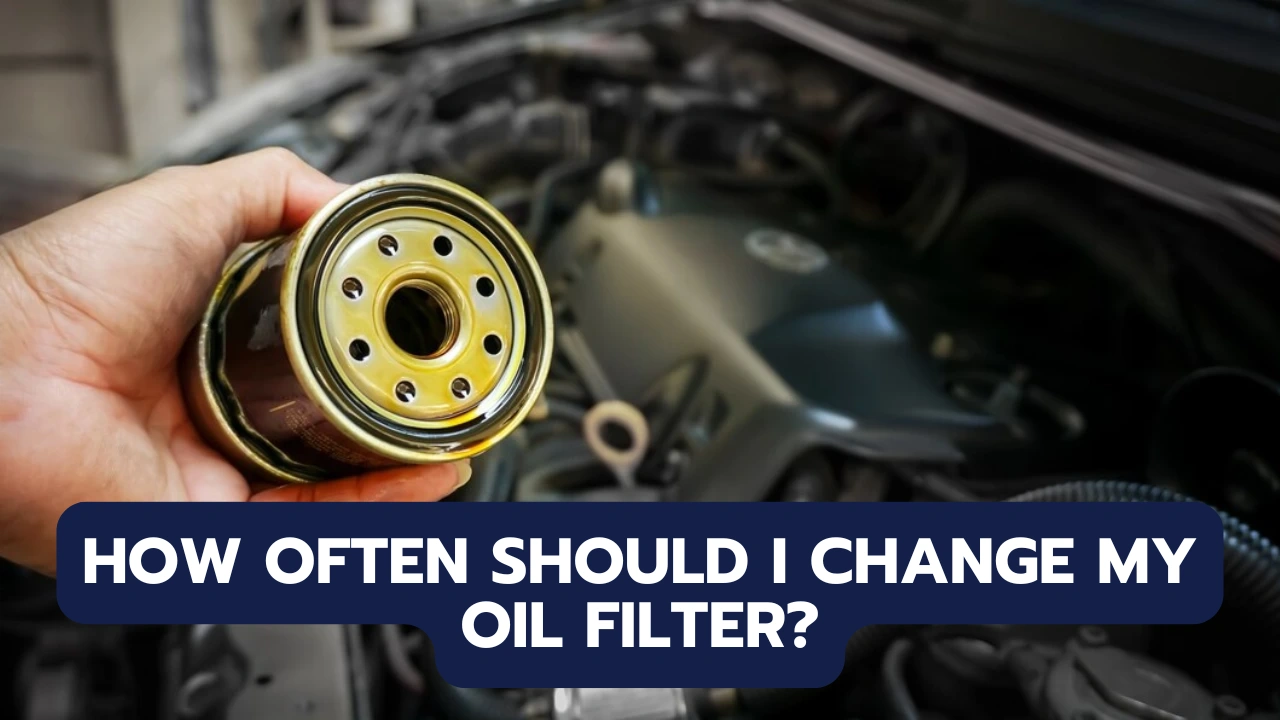Maintaining your vehicle’s engine might seem straightforward, especially with modern advancements in engine and oil technology. Many cars today can go as long as 7,500 miles or more between oil changes, thanks to improved synthetic oils and efficient engines. But one question often arises during routine maintenance: How often should you change your oil filter? The answer, though sometimes debated, is simple — replacing your oil filter every time you change your oil is the best practice to protect your engine and ensure it performs optimally for years to come.
What Does an Oil Filter Do?
The oil filter plays a critical role in your engine’s lubrication system. As engine oil circulates, it collects dirt, metal particles, and other contaminants that can cause damage. The oil filter removes these harmful particles, keeping the oil clean and ensuring it can properly lubricate the engine’s moving parts. Here’s a breakdown of how the oil filter functions:
- Filtration: As oil flows through the engine, it passes through the filter, which captures impurities and debris.
- Protection: By keeping the oil clean, the filter helps prevent abrasive particles from causing wear and tear on engine components.
- Lubrication Efficiency: Clean oil can move smoothly through the engine’s passageways, reducing friction and overheating.
Without a functioning oil filter, contaminants can accumulate, leading to increased engine wear, reduced performance, and potentially severe damage.
What Happens If You Don’t Change the Oil Filter?
Neglecting to change your oil filter can have significant consequences for your engine. Over time, the filter becomes clogged with debris and contaminants, reducing its ability to clean the oil effectively. When this happens, several issues can arise:
- Reduced Oil Flow: A clogged filter can restrict oil flow, meaning less oil reaches critical engine components. This can lead to increased friction and overheating.
- Unfiltered Oil Circulation: In some cases, the filter bypass valve opens to prevent oil starvation. This allows unfiltered oil to circulate through the engine, carrying dirt and particles that can cause wear and tear.
- Engine Wear and Damage: Contaminated oil accelerates engine wear, potentially leading to costly repairs or even engine failure.
- Decreased Performance: Dirty oil can reduce engine efficiency, resulting in lower fuel economy, reduced power, and rough operation.
Considering the vital role the oil filter plays, neglecting to replace it can compromise your engine’s health and longevity.
Why You Should Change Your Oil Filter at Every Oil Change
While some vehicle manuals suggest replacing the oil filter every two oil changes, experts generally agree that it’s best to replace the filter every time you change your oil. Here’s why:
1. Prevents Contamination of New Oil
New oil is clean and free of contaminants, but if you reuse an old oil filter, you’re immediately introducing old debris into the fresh oil. This defeats the purpose of changing the oil in the first place. A new filter ensures the oil stays clean for as long as possible.
2. Minimal Cost for Maximum Protection
An oil filter typically costs between $5 and $10, depending on your vehicle’s make and model. Considering the potential cost of engine repairs — which can run into the thousands of dollars — this small expense is well worth it. Changing the filter is a low-cost investment that provides significant protection for your engine.
3. Ensures Optimal Oil Flow
A clean oil filter allows oil to flow freely through the engine. This helps maintain proper lubrication and cooling, which are essential for preventing engine wear and overheating. A clogged filter, on the other hand, can restrict oil flow and cause damage.
4. Reduces Engine Wear
By replacing the oil filter regularly, you reduce the risk of contaminants circulating through the engine. This helps prevent premature wear on pistons, bearings, and other vital components.
5. Extends Engine Life
Consistent maintenance, including regular oil and filter changes, helps extend the life of your engine. A well-maintained engine can last for hundreds of thousands of miles, providing reliable performance and avoiding costly repairs.
The Importance of Quality Oil Filters
Not all oil filters are created equal. To ensure the best protection for your engine, it’s important to use high-quality filters. Here’s what to look for:
- OEM (Original Equipment Manufacturer) Filters: These filters are designed specifically for your vehicle’s engine and provide the best fit and performance. They are engineered to meet the manufacturer’s specifications and ensure optimal filtration.
- High-Quality Aftermarket Filters: If you choose an aftermarket filter, select one from a reputable brand known for quality and reliability. Avoid cheap, low-quality filters, as they may clog more quickly and fail to filter contaminants effectively.
Using a quality filter ensures your engine receives the protection it needs, even during extended oil change intervals.
How Often Should You Change the Oil and Filter?
The recommended oil change interval varies depending on your vehicle and driving conditions. Here are some general guidelines:
- Conventional Oil: Typically every 3,000 to 5,000 miles.
- Synthetic Oil: Every 7,500 to 10,000 miles or as specified by your vehicle’s manual.
Regardless of the interval, it’s a good idea to replace the oil filter each time you change the oil to maintain the best engine performance.
Can I change the oil filter without changing the oil?
Yes, it is possible to change the oil filter without changing the oil, but it’s not recommended. If the oil is old enough to require a new filter, it’s likely time to replace the oil as well. Doing both together ensures optimal engine protection.
What happens if I skip an oil filter change?
Skipping an oil filter change can lead to a clogged filter, reduced oil flow, and unfiltered oil circulating through the engine. This increases engine wear and can lead to costly repairs or engine failure over time.
How do I know if my oil filter needs to be replaced?
Signs that your oil filter may need replacement include low oil pressure, dirty or contaminated oil, engine noises, and decreased performance. However, it’s best to follow the recommended maintenance schedule and replace the filter at each oil change.
Can using a cheap oil filter damage my engine?
Yes, low-quality or cheap oil filters may not filter contaminants effectively and can clog more quickly. This can lead to unfiltered oil circulating through your engine, causing wear and potential damage. Always use high-quality or OEM filters for optimal protection.
Is it necessary to use an OEM oil filter?
While it’s not strictly necessary, using an OEM oil filter ensures the best fit and performance for your engine. OEM filters are designed to meet the manufacturer’s specifications, providing reliable filtration and protection.
What’s the difference between a conventional and synthetic oil filter?
Synthetic oil filters are designed to handle the longer intervals associated with synthetic oil changes. They typically offer better filtration and durability compared to conventional filters. If you use synthetic oil, it’s a good idea to use a filter designed for it.
How much does an oil filter cost?
An oil filter typically costs between $5 and $10, though prices can vary based on vehicle make and model. High-performance or specialty filters may cost more, but the investment is minimal compared to potential engine repairs.
Does a dirty oil filter affect fuel efficiency?
Yes, a clogged or dirty oil filter can reduce oil flow, causing the engine to work harder and decreasing fuel efficiency. Regular filter changes help maintain optimal engine performance and fuel economy.
How long can an oil filter last without being changed?
While some manuals suggest an oil filter can last through two oil changes, it’s best to replace it every time you change the oil to ensure clean lubrication and prevent engine damage.













